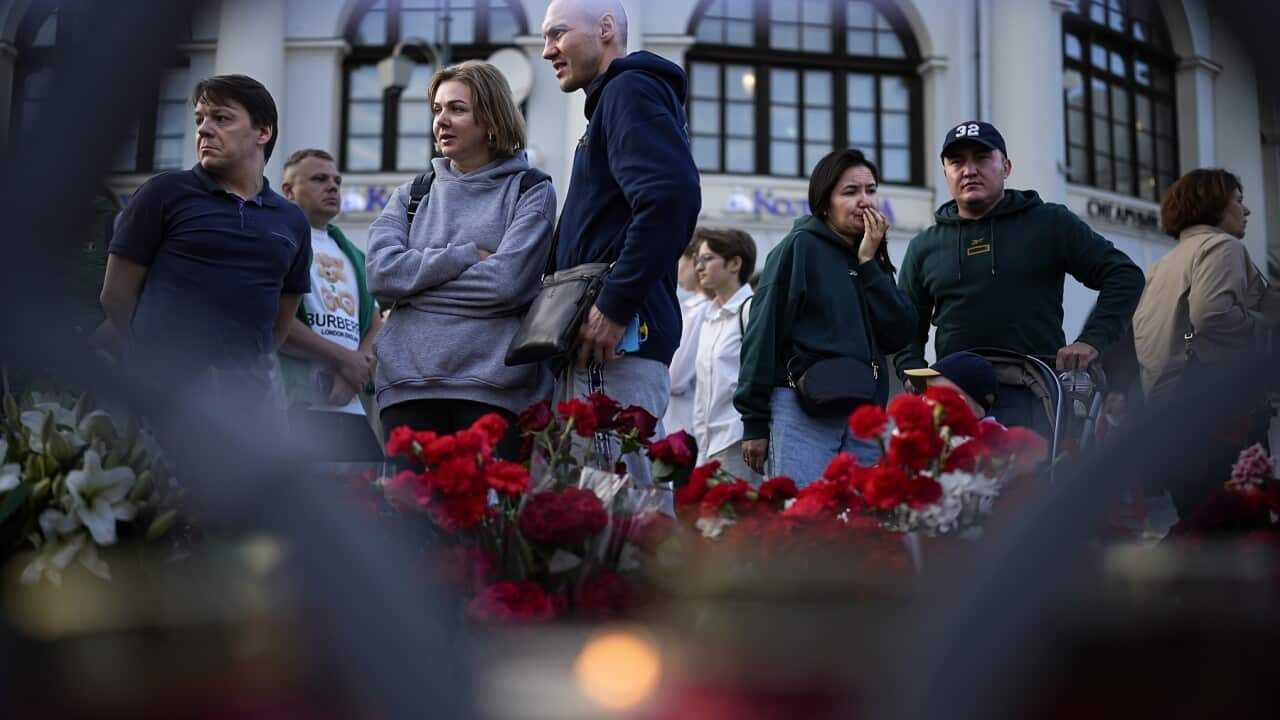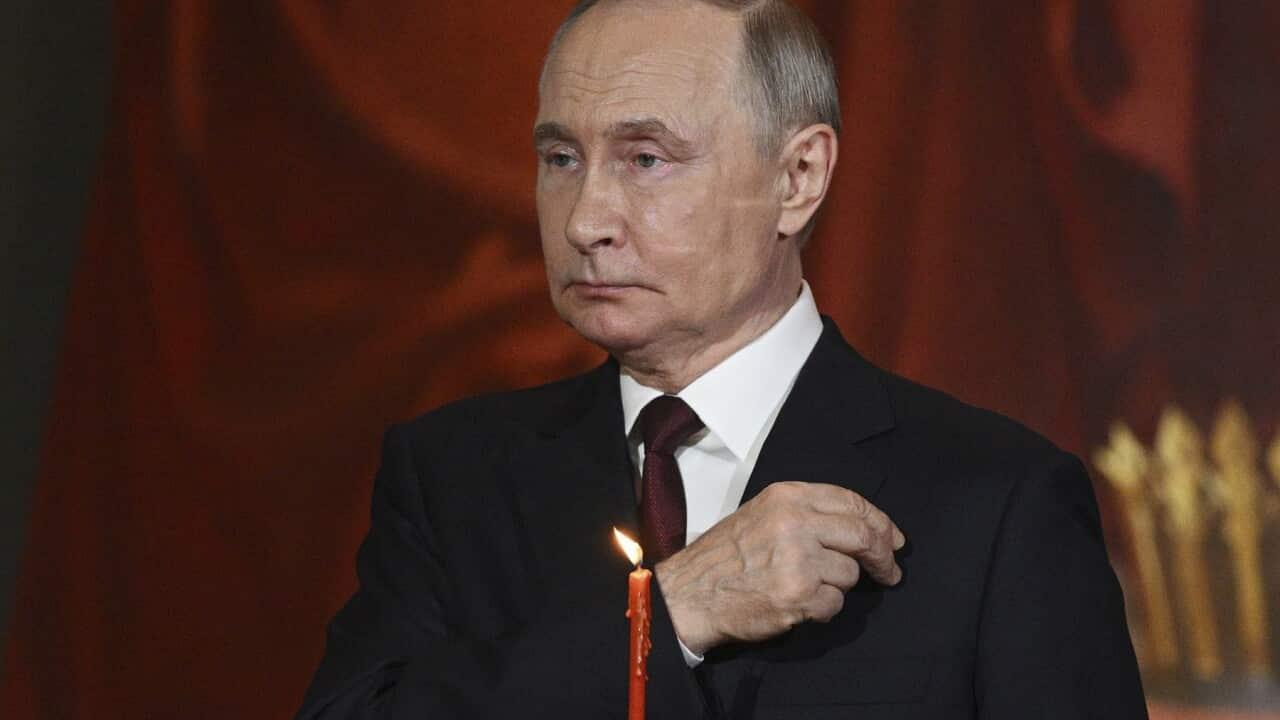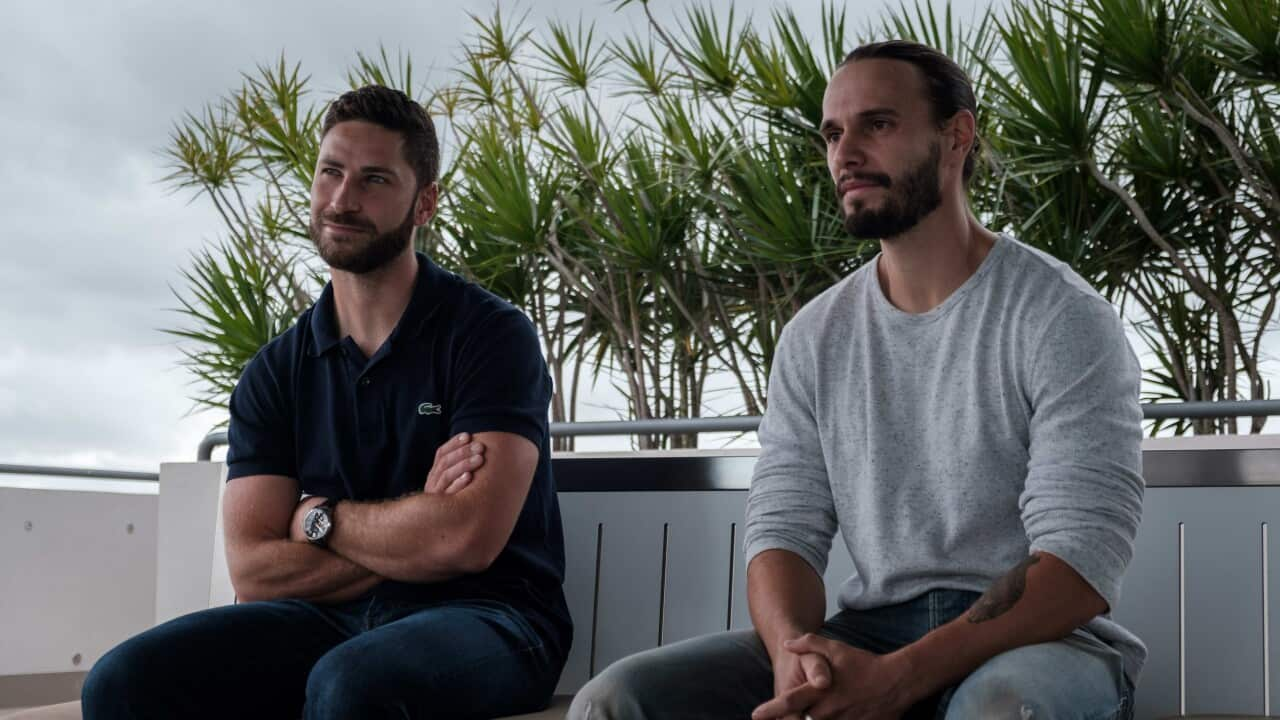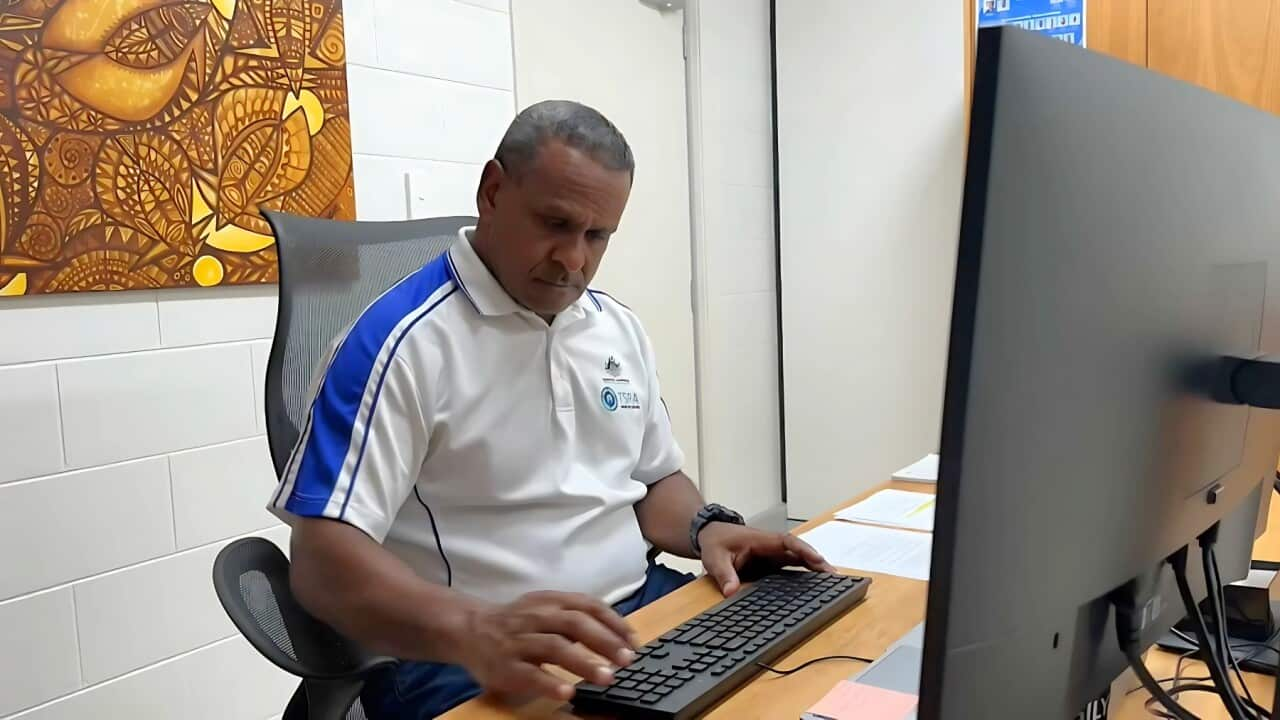TRANSCRIPT:
Russia’s Investigative Committee has confirmed Wagner mercenary group chief Yevgeny Prigozhin was killed in a plane crash.
Committee spokeswoman Svetlana Petrenko says DNA tests were used to confirm the identities of those aboard the Wagner Group private jet which crashed on the 24th of August.
"As part of the investigation of the plane crash in the Tver region, molecular genetic examinations have been completed. According to their results, the identities of all 10 dead were established, they correspond to the list stated in the flight manifest."
The statement did not offer any details as to what might have caused the crash.
The private jet crashed two months to the day after Mr Prigozhin led an abortive mutiny against Russia's army top brass.
President Putin described that mutiny as a treacherous stab in the back, but later met with Mr Prigozhin in the Kremlin.
He sent his condolences on Thursday to the families of those who died in the crash.
Meanwhile, spontaneous memorials have appeared across Russia following confirmation of Mr Prigozhin's death.
Muscovites have laid flowers at a makeshift shrine festooned with Russian flags and photographs set up a short distance from the Kremlin to the memory of Mr Prigozhin and his second in command of the Wagner Group, Dmitry Utkin.
Konstantin Makeev is a Wagner Group supporter and was at the shrine.
He doesn't believe this is the end of Wagner.
"I think Wagner guys will find a successor for Prigozhin for sure. I think Yevgeny Prigozhin was thinking about the possibility of such situation, and he has a successor for sure. And I think that Wagner members won't step aside from their principles and will keep going."
Dmitry Karpov is another Wagner supporter.
He says Mr Prigozhin was an example to all.
"Prigozhin showed everyone how it should and shouldn't be done. Of course, for many commanders, managers and leaders, an example of a person going to the front line and taking a flag in his hands - is an example of how it should be done. On the other hand, of course, there was a lot of emotional statements and especially actions, especially orders to his subordinates - all of this can be judged by time only. In this case I wouldn't make my subjective assessment to what has happened. But I would say that such people remain in history as an example."
Alexander Dykhov was also at the shrine, and says Mr Prigozhin and Mr Utkin are heroes of Russia.
"I think all these conversations about Prigozhin's mistakes and different assessments of Prigozhin's actions will be forgotten and only an image of a hero will remain in people's memory. And an image of the heroes he had gathered around himself. Both him and Dmitry Utkin are the real heroes, and no one else has such a heroic image right now, not just in Russia, but in the whole world."
President Vladimir Putin has now ordered Wagner fighters to sign an oath of allegiance to the Russian state.
He signed the decree bringing in the change with immediate effect after the Kremlin said Western suggestions Mr Prigozhin had been killed on its orders were an absolute lie.
Dr Matthew Sussex is visiting fellow at the Australian National University Strategic and Defence Studies Centre and Griffith University's Asia Institute.
"What Putin has done is asked Wagner soldiers to basically swear allegiance to Russia and to the Constitution and to the armed forces. And it's probably the last bit that's the most important because previously, Wagner had a code of honour which said that it should uphold Russian interests everywhere. But it certainly didn't swear an oath of allegiance to the Armed Forces, which was I think, probably a source of a lot of the tension."
Mr Sussex does not believe this is the end of the Wagner Group.
Since Mr Prigozhin's death and that of Mr Utkin, Wagner has continued its operations in several countries.
"Well, according to the government in Mali, where Wagner has been very active, it's business as usual. They keep dealing with effectively, the Russian government and funnily enough, that's what Wagner was when it came to do dealings with African countries in particular, it was just an arm of the Russian government. So it may well be that Wagner, you know, gets sort of under new management, or possibly even that another Russian private military company takes over."
There are also dozens of Russian private military companies.
"Russia has gone on a sort of proliferation of private military companies. Sometimes they're just small groups for the protection of individual members of the elite. Sometimes they're bigger than that and they can actually do sort of combat roles. And some of them are tied to big companies. So for instance, Gazprom, the big energy company has has a couple of private military companies, some of which are in Ukraine. And then there are a whole bunch of others, some of them created by the military. Some of them coming out of Crimea, and up to about 38 or so in, in recent months that have been created. So the question is, you know, how the Russian government actually manages to keep control over all of these people who are very heavily armed."













